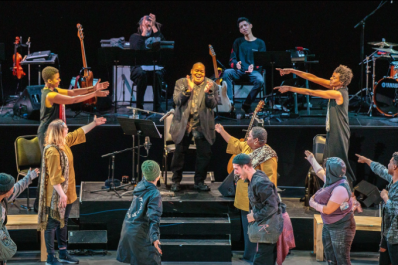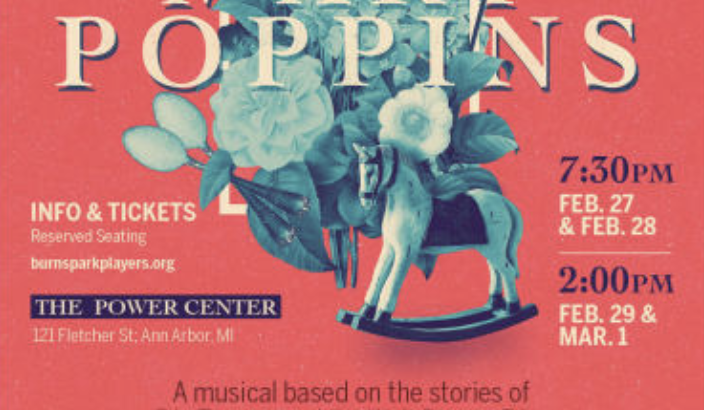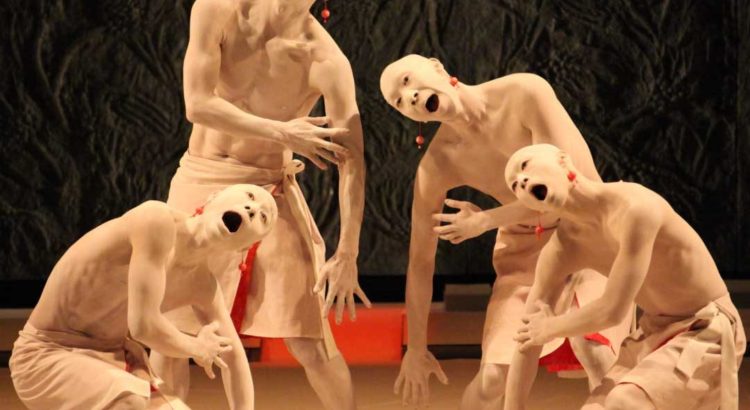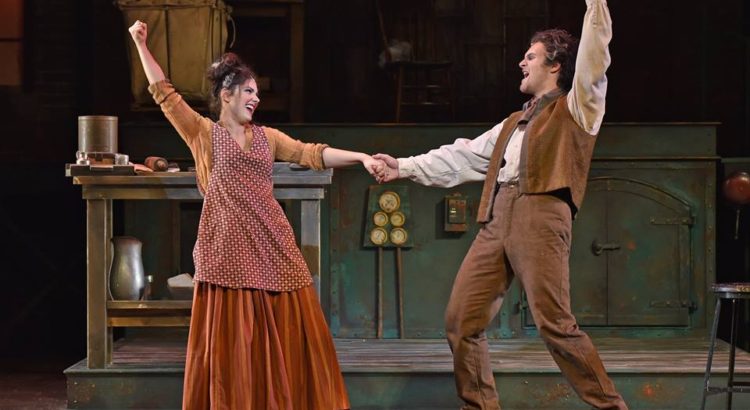The Demon Barber of Fleet Street took the stage of the Power Center, and everything about it was absolutely thrilling and spectacular in the grandest sense. Comparable to a Broadway production, SMTD has outdone themselves again.
Jamie Colburn was an impeccable Sweeney Todd, capturing his rage and thirst for vengeance with every scowl and word. Allie Re’s performance of Mrs. Lovett exceeds words, as she embodied her quirky character just perfectly. Her facial expressions were extraordinary, showing the complexities and intricacies within her. The classic number “A Little Priest” ended the first act with a humorous, witty delight as Mrs. Lovett and Sweeney Todd come up with their genius and delicious plan. Together, Re and Colburn stole the show.
The supporting cast and ensemble were splendid as well. Blake Roman as Anthony in “Johanna” and Emma Ashford as Johanna in “Green Finch and Linnet Bird” brought powerful vocals to the stage, matching each other beautifully later in “Kiss Me.” Aaron Robinson pulled off Pirelli’s difficult part with ease, and Spencer LaRue played the precious, innocent Tobias, performing one of my favorite numbers, “Not While I’m Around,” beautifully. The Beggar Woman, played by Cydney Clark, fully captured the craze and hysteria of the streets of London. Sondheim’s score is creativity at its peak, but the entire cast and pit nailed this challenging musical.
Aside from the phenomenal acting and singing, everything about this production was stellar. The props were amusing and delightful, from Mrs. Lovett’s delectable meat pies to Todd’s barber chair that disposes of his victims in a humorous fashion. The choreography of this production was particularly stunning. You normally don’t think about Sweeney Todd as a choreography-heavy musical, but the ensemble quickly changed that notion as they came out during the opening “Ballad of Sweeney Todd” and established the ominous nature of this musical with an intensely choreographed number. In “By the Sea,” the pairs of dancers in their outfits and umbrellas evoked Mrs. Lovett’s dream in a very visually pleasing way.
Probably what was most notable about the performance I saw on Sunday was the fact that at the beginning of the second act, Colburn got his hand caught in the barber chair and his pinky fingernail got ripped off. However, like a true actor, he kept singing in that moment, went offstage to wrap it and apply makeup, and then he continued the rest of the show like a champ. Colburn took this bloody and gruesome musical to new levels with his personal experience, and that is certainly to be applauded.
Sweeney Todd was spectacular on every single level, from the lighting to the musical to the costumes to the choreography to the props to the singing to the acting. This was a wonderful performance to finish the year off with, since everything was perfectly executed.







